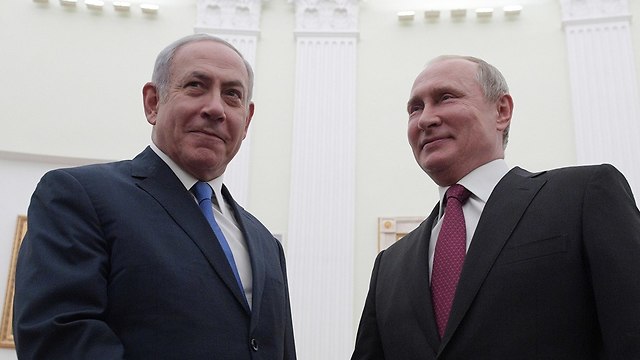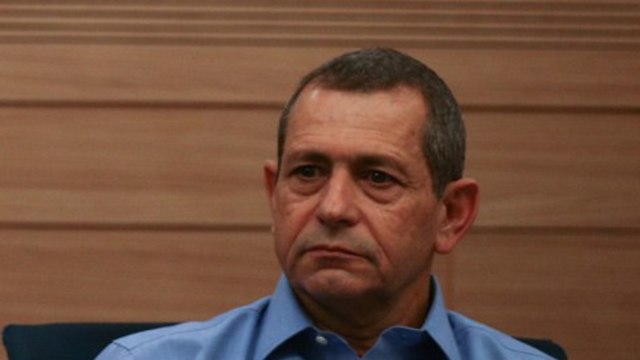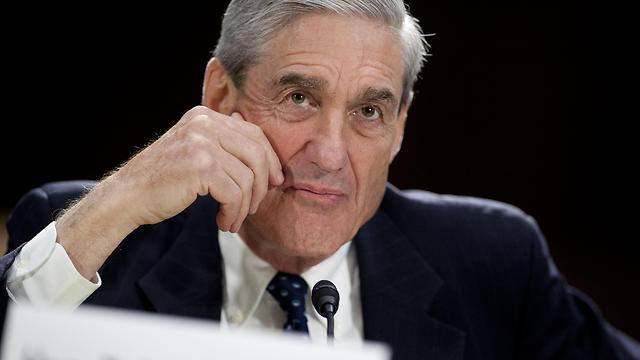

Is Russia trying to meddle in Israeli elections?
Analysis: The head of Israel's domestic security agency says a cyber attack or an 'influence attack' on social media aims to undermine Israelis' trust in their government, and while it is easy to point the finger at Moscow, Iran and China could also benefit from such a move.
Argaman warned of a cyber attack or an "influence attack" on social media, meant among other things to undermine the citizenry's trust in its government, making it difficult for it to govern.
In the wake of Argaman's comments, the Shin Bet issued a statement saying "the State of Israel and its intelligence community have the tools and capability to locate, monitor and thwart attempts of foreign influence, if any are made. The Israeli security system has the ability to ensure the existence of free, democratic elections in the State of Israel." Russia denied any involvement and - in a variation on the fake news theme - ordered anyone listening not to read the Israeli media.
The Shin Bet head's warning came in the form of a strong statement: "I don’t know in favor of whom or against whom the foreign country will interfere. At this point, I cannot say which political interest plays a role here, however, a foreign country will attempt to meddle in the April elections, and I know what I'm talking about." He also said that this country would "attempt this using cyber measures, such as hackers."
The American attempt
One of the countries Argaman may have been talking about is indeed Russia, which has been accused of attempting to interfere in the elections of many other countries, particularly the United States. Moscow was accused of interfering in the 2016 US presidential elections in an effort to promote the candidacy of Donald Trump and undermine his Democratic rival Hillary Clinton.
Among other things, US intelligence agencies claimed that the Russian influence campaign included breaking into the computers of the Democratic Party and using social media to spread false information. However, in a report published in 2017, US intelligence agencies said they didn't try to estimate the effects of Russian interference on the results of the elections.
Even though President Trump repeatedly cast doubt on Russia's alleged interference in the elections he won, his senior aides accused Moscow of interference last August in another campaign—the midterm elections last November. The Director of National Intelligence in the US, Dan Coats, said at the time that Washington is preparing to protect the next presidential elections, in 2020, from such interference.
The Russian interference led to the launch of a special investigation by Robert Mueller, who is also examining possible ties between the Trump campaign and Russian elements. The investigation led to indictments against many of the president's close associates. For example, Michael Flynn, who was briefly the national security advisor, admitted to lying in his testimony to the FBI about his ties with the Russians and signed a plea deal with Mueller.
The erstwhile head of Trump's campaign, Paul Manafort, also signed a plea deal, which was eventually cancelled because he apparently violated the deal by lying to investigators about the Russian involvement. Mueller's investigation also led to the downfall of Trump's close confidant and former lawyer Michael Cohen, who was sent to prison for three years after admitting to lying to Congress about the proposal to build a "Trump Tower" in Russia and about paying hush money to women who claimed to have had an affair with Trump.
Russia interference outside US
The United States is not the only country where Russia allegedly tried to interfere in an election campaign. Western sources claimed that Europe was also a main target for Moscow. One such example is the presidential elections in France in 2017. A day and a half before Election Day, hackers broke into the computers of then-candidate Emmanuel Macron's campaign and leaked hundreds of documents online.
The organization APT28—which has ties with the Russian military's GRU intelligence agency—was allegedly behind the attack. APT28 was also accused of carrying out cyber attacks during the US elections. However, the French National Cybersecurity Agency said a month later that it found no evidence that APT28 was behind the hacking into Macron's campaign.

Russia also allegedly interfered in the 2017 elections in Germany. Chancellor Angela Merkel may have won the highest number of votes, but she lost power in the German parliament, with the far right Alternative to Germany (AfD) party getting into the legislature for the first time.
TIME magazine reported that AfD's success was not just due to the immense frustration from Merkel's failed immigration policy, but it was also thanks to the favorable coverage the party enjoyed on Russia's state media, which is watched by the big Russian immigrant population that settled in Germany (making up five percent of the entire German population).
But Russia is not the only country Shin Bet Director Argaman was referring to: China and Iran were also accused by American officials over the past year of trying to interfere in the midterm elections. President Trump himself accused China of trying to interfere in the elections—something Beijing denied.
The Chinese have an interest in the government in Israel for several reasons, and the Americans are pressuring Israel to minimize ties with them.
It's safe to assume, for example, that the Chinese could have interests in the senior positions in Israel's infrastructure field.
Ahead of US National Security Advisor John Bolton's visit to Israel, reports emerged that the Americans are worried as more and more Chinese technologies are gaining foothold in Israel and by the direct Chinese investments in Israel, particularly in the Haifa port.

















